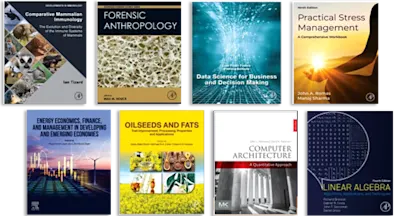
Transport Economic Theory
- 1st Edition - July 18, 2007
- Imprint: Elsevier Science
- Author: Sergio Jara-Díaz
- Language: English
- eBook ISBN:9 7 8 - 0 - 0 8 - 0 5 4 8 9 9 - 9
The study of transport is the study of movements, of displacements of individuals and things in both space and time. The objective of this book is to provide the basic concepts and… Read more
Purchase options

The study of transport is the study of movements, of displacements of individuals and things in both space and time. The objective of this book is to provide the basic concepts and tools for the economic analysis of transport systems, with emphasis on the behaviour of users and operators. Distinctive features will be introduced and treated as the natural consequence of processes that deal with displacements in space-time. Emphasis will be given to the operation of transportation systems, i.e. to the actual form of combining vehicles, terminals and rights-of-way in order to produce certain level of flows of different things in different directions. Thus, ours will be a short run oriented view, dealing with the adequate usage of resources for given levels of investment.
*Focuses on the behavior of users and operators outside of traditional economic behavior theory
*Includes time and space as a distinctive feature of transport economics
*Includes time and space as a distinctive feature of transport economics
Researchers in transport systems, transport theory, and application of economic theory.
Proposed Contents
Chapter 1: Transport Production and the Analysis of Industry Structure
1.1. Introduction
1.2. Transport production
1.2.1 Product and technology
1.2.2 The simple cyclical system
1.2.3 The three nodes system
1.2.4 Scale economies
1.3. Transport cost functions: the theory
1.3.1. Basic definitions and properties
1.3.2. Scale and scope in transport production
1.3.3. Transport output and the estimation of cost functions
1.4 Transport cost functions: the empirical work
1.4.1 Functional form
1.4.2 Output aggregates
1.4.3. Scale from aggregates
1.4.4 Economies of density
1.4.5 Spatial scope from aggregates
1.5 Synthesis
Chapter 2: Travel Demand and Value of Time
2.1 Introduction
2.2 Discrete choices in travel demand.
2.2.1 Quality and income in discrete choice.
2.2.2 The goods/leisure framework
2.2.3 Extensions
2.3 The allocation of time
2.3.1 Theories
2.3.2 Discussion
2.4. A microeconomic travel-activities model
2.4.1 Travel choice and time allocation theory
2.4.2 A unified model for travel and activities
2.4.3 Comments
2.5. Conclusions
Chapter 3: Valuation of Users' Benefits in Transport Systems
3.1. Introduction
3.2. Turning utility into monetary units
3.2.1. The neo-classical approach
3.2.2. The compensating and equivalent variations
3.2.3. The (Marshallian) consumer's surplus
3.3. Consumers' benefits in transport projects
3.3.1. Transport demand and economic benefits
3.3.2. The rule-of-a-half
3.3.3. Transport demand and more rigorous forms of users' surplus
3.3 Social benefits in transport projects
3.4 Final comments and conclusions
Chapter 4: Optimal Transport Pricing
4.1. Introduction
4.2 Optimal pricing for different objetives and constraints
4.2.1 Single output case: users’ benefit; profit (private operator); social benefits
(public operator); cost coverage.
4.2.2 Multiple output case: users’ benefit; profit (private operator); social benefits
(public operator); ridership; social benefit, covering costs in competitive markets
4.3 Applications using discrete travel choice models
4.3.1 Objectives and constraints
4.3.2 Discussion
4.3.3 Information requirements
4.3.4 Pricing levels
4.3.5 Validity of ceteris paribus analysis
Chapter 1: Transport Production and the Analysis of Industry Structure
1.1. Introduction
1.2. Transport production
1.2.1 Product and technology
1.2.2 The simple cyclical system
1.2.3 The three nodes system
1.2.4 Scale economies
1.3. Transport cost functions: the theory
1.3.1. Basic definitions and properties
1.3.2. Scale and scope in transport production
1.3.3. Transport output and the estimation of cost functions
1.4 Transport cost functions: the empirical work
1.4.1 Functional form
1.4.2 Output aggregates
1.4.3. Scale from aggregates
1.4.4 Economies of density
1.4.5 Spatial scope from aggregates
1.5 Synthesis
Chapter 2: Travel Demand and Value of Time
2.1 Introduction
2.2 Discrete choices in travel demand.
2.2.1 Quality and income in discrete choice.
2.2.2 The goods/leisure framework
2.2.3 Extensions
2.3 The allocation of time
2.3.1 Theories
2.3.2 Discussion
2.4. A microeconomic travel-activities model
2.4.1 Travel choice and time allocation theory
2.4.2 A unified model for travel and activities
2.4.3 Comments
2.5. Conclusions
Chapter 3: Valuation of Users' Benefits in Transport Systems
3.1. Introduction
3.2. Turning utility into monetary units
3.2.1. The neo-classical approach
3.2.2. The compensating and equivalent variations
3.2.3. The (Marshallian) consumer's surplus
3.3. Consumers' benefits in transport projects
3.3.1. Transport demand and economic benefits
3.3.2. The rule-of-a-half
3.3.3. Transport demand and more rigorous forms of users' surplus
3.3 Social benefits in transport projects
3.4 Final comments and conclusions
Chapter 4: Optimal Transport Pricing
4.1. Introduction
4.2 Optimal pricing for different objetives and constraints
4.2.1 Single output case: users’ benefit; profit (private operator); social benefits
(public operator); cost coverage.
4.2.2 Multiple output case: users’ benefit; profit (private operator); social benefits
(public operator); ridership; social benefit, covering costs in competitive markets
4.3 Applications using discrete travel choice models
4.3.1 Objectives and constraints
4.3.2 Discussion
4.3.3 Information requirements
4.3.4 Pricing levels
4.3.5 Validity of ceteris paribus analysis
- Edition: 1
- Published: July 18, 2007
- Imprint: Elsevier Science
- Language: English
SJ
Sergio Jara-Díaz
Affiliations and expertise
Department of Civil Engineering, University of Chile, Casilla, Santiago, Chile